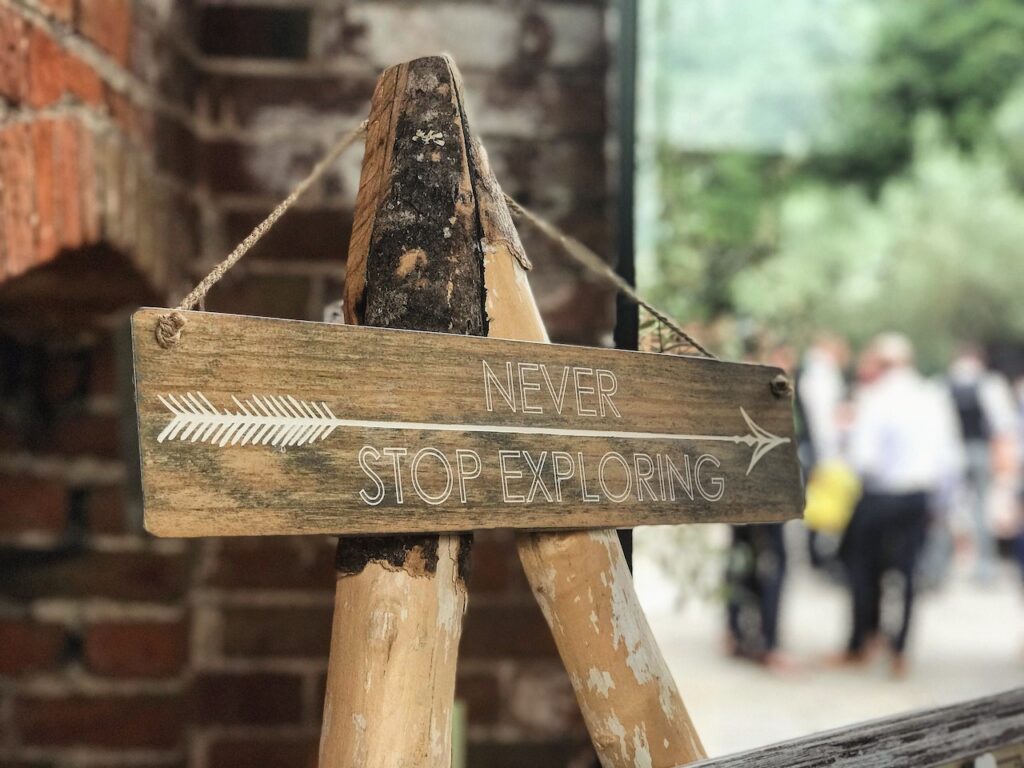A career coach is someone you use when making a career change. This could be looking for a promotion, more pay, or heading in a new direction.
A coach helps you focus on what you want, your strengths and the skills you need to get to your goal.
Here are the ways that coaching can help.
1. To invest in yourself
There is no greater investment than in yourself.
I was in my company for 10 years and deciding my next step: Continue climbing the corporate ladder, look elsewhere, or do something different.
There were several paths staring at me, but I couldn’t figure out which one to take.
Working with a coach, I focused on my values, motivations and aspirations.
I got clarity on my path for a career change and how to repackage myself.
That investment was in terms of time and money as career coaches can charge anything from hourly rates (of £100+) to monthly programmes (of £1,000+).
If that investment can lead to an increase in your earnings (or not having to take a salary cut despite a career change), better job satisfaction or stretch and overall wellbeing, then it’s worth it.
2. To be kicked out of your comfort zone
We all feel stuck in our careers at times. As I did with what to do or where to go next.
My coach booted me out of my comfort zone by getting to the root of what made me uncomfortable and held me back.
I dug deeper into my fears and the worst-case scenarios I had imagined. What if I failed? What if I wasn’t good enough?
Fear of change is natural. It shouldn’t be ignored as it’s a signal of our discomfort. It also shouldn’t consume or stop us.
Working with a coach allowed me to push through that discomfort and fear and realise that the worst that could happen wasn’t as bad as I thought.
If things didn’t work out, I could try again. It was about taking small steps every day towards my desired goal.
Worse than failing would have been remaining stuck for another year or two by not doing anything.
3. To get faster results
Coaching got me results faster than I would have on my own.
This is because you commit to a process and are held accountable.
I gave myself 6 months to get a new role in a new industry.
My coach and I worked towards this with weekly calls and actions.
I achieved my goal in 3 months. Earlier than I had set myself and much earlier than if I had tried to on my own.
4. To benefit from someone else’s experience
I got fast results from my coach’s tried and tested methods that she used on hundreds of clients before me.
Why start a new playbook when you can use an existing blueprint?
These included: strength and skills-based exercises; test-driving new careers; learning how to make better data-driven career decisions; CV reviews; interview scripts; and nailing those all-important salary negotiations based on your relevant experience and transferable skills.
I was given a new perspective on how to approach the above situations.
5. To expand your network
With a coach, you have access to their contacts.
My coach had a LinkedIn network of nearly 10,000 people.
I was put in touch with recruiters, CV specialists, productivity and performance professionals, wellbeing and mental health consultants and motivational speakers.
Coaching should be about expanding your mindset, skills and network.
6. To break bad habits
We’ve all been guilty of doing the same things but expecting different results.
If something hasn’t worked, it’s time to switch things up.
Working with my coach meant breaking bad habits.
Negative thoughts and limited beliefs, not dwelling on what had gone wrong in the past, and asking for help.
It felt hard at first. After all, I had managed to get this far in my career, on my own, for over a decade.
However, once you reach out for help, you find you no longer have to do everything alone. There are people willing to have your back.
7. To set up new routines
I took on new routines to focus on my career plan. Carving out more time in the mornings and evenings to research new industries, to network and to position myself for more opportunities.
I also had to trust the process. Sometimes, I wasn’t sure why my coach was making me do things such as journaling or mindful exercises.
If you let go and dive in, it’s a beautiful leap of faith.
8. To have someone in your corner
From the start, my coach pledged to see me through to my goals.
I had an accountability buddy and a constant kick up the ass. She didn’t let me quit or give up. And because of that, she got me to the finish line.
This year, I started a completely new role in a different industry. I’ll also be launching some side business ventures that I’ve always wanted to do but was scared to in the past. It’s reminding myself that courage is being scared, but doing it anyway.
It’s likely to still be a long road ahead, but I’m stepping confidently into these exciting unknowns.
Some final tips and reflections from the experts:

Janine Esbrand is a career coach who helps women attract exciting new roles with more meaning, impact and pay.
“I always tell people that coaching is about slowing down to give yourself clarity. You need to look inwards first, in order to speed up later.”

Alice Dartnell is a time and energy management coach who helps individuals to level up and create a life by design, not by default.
“Your life and time are precious so don’t waste them. Use your energy and mindset to maximise your time. That’s how you get to what you want.”

Anna Levy is a career change and mental fitness coach who specialises in helping women get clarity by finding more purpose in their work.
“Our biggest barriers to change are our fears, self-doubt and a lack of knowledge about what else is possible. It’s about getting out of our heads and getting clearer on what matters to us the most.”

Lauren Leopold helps women who want to escape the corporate rat race and set up their own business.
“The first step to running a business that you truly love and on your terms is believing that it is absolutely possible. After that, the world is your oyster.”

I have personally found that asking similar questions has opened up valuable conversations with my team members, helping me understand their aspirations, concerns, and what they need to thrive. It’s an approach that can make a real difference in employee engagement and retention.
Thanks for your comment David and agree that’s an effective approach to engage your team